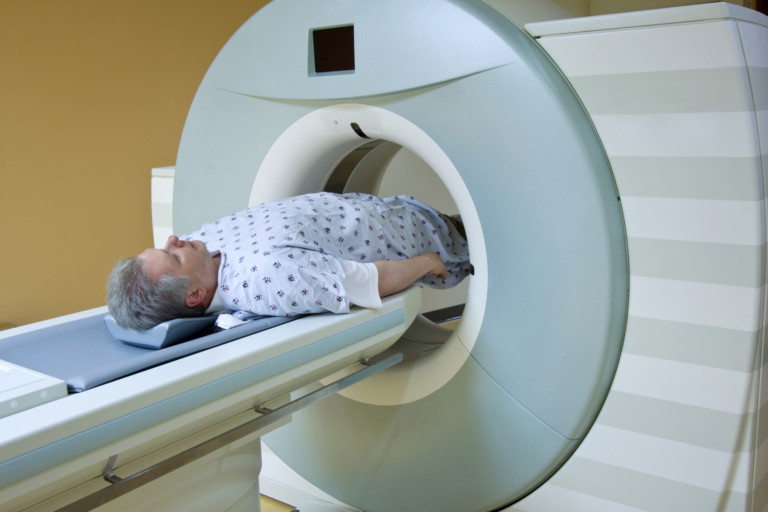
London: About 2.5 million people in the UK are living with or after cancer. Scarcely a household has not been affected or bereaved, and there are fewer still who will remain untouched in the future. And, it is not true that the reason prostate cancer research receives half as much funding as breast cancer, despite a higher mortality rate, is because of bias against men.
The real scandal is that men are less likely to be diagnosed early than women, are more likely to die, and are likely to die younger
As Cancer Research UK has noted about the new figures, the reason more men are developing (and dying from) prostate cancer now is because those men are no longer dying from other diseases - including other cancers - before prostate cancer gets the chance to set in. This is not to minimise the significance of the illness.
As prostate cancer moves up the ranks for fatal diseases and awareness and charitable donations grow, it is likely to become of increasing interest to researchers.
Earlier screening
The efforts of charities like Men United should be encouraged and applauded, while Prostate Cancer UK, which published the new figures are surely right to call for better, earlier screening for men.
At the same time, issues around men’s health are not restricted to prostate cancer. In fact, male-specific cancers kill far fewer men than non-gender-specific cancers such as lung, bowel and colorectal cancers. The real scandal is that men are less likely to be diagnosed early than women, are more likely to die, and are likely to die younger.
Among cancers affecting both men and women, a man is 67 per cent more likely to die following diagnosis.
This can partly be explained by the fact that men are less likely to visit a doctor with illnesses or symptoms of all types at all ages. Some of this is undoubtedly related to our man-up/boys-don’t-cry model of masculinity which we instil in our children.
To admit to a physical ailment is to admit to a weakness, something which remains anathema to many men.
The differentials in use of health services diminish significantly when men retire because health services are rarely designed around the needs and lifestyle of men of working age.
No simple solutions
These are knotty problems without simple magic wand solutions, however the least we can expect is some political will.
There has never been an equivalent overview of men’s health. Last year, the Centre for Men’s Health at Leeds Beckett University - the only academic unit of its type in Britain and a major research department on male-specific cancers - was closed due to funding cuts.
Cancer affects women, men and families. The case for gender-sensitive, gender-inclusive policy is overwhelming, but the steps we take must be taken together, not men against women or cancer against cancer.
‘Men, beat breast cancer: talk about it’
News that deaths from prostate cancer in Britain have overtaken those from breast cancer for the first time - with one man dying of it every 45 minutes - should be a wake-up call. I’ve spent my life studying and treating prostate cancer and then, aged 62, was myself diagnosed with it. In December, I celebrated five years free of the disease. Here are five ways to improve the prognosis for everyone.
1. Celebrities: With names like Kylie Minogue and Angelina Jolie involved, it’s no surprise that the breast cancer lobby has been so powerful, receiving twice as much in government and charity funding as prostate cancer. Events like Movember have helped the cause, but a glamorous, David Beckham-type champion for prostate cancer could be a big motivator both in attracting public money and galvanising people to fund-raise.
2. Testing: I could have been just another statistic if my cancer hadn’t been picked up early with a PSA test. There is currently no national screening programme for prostate cancer in the UK - as there is for breast cancer - because the PSA check can be unreliable. But we are getting better at figuring out who needs to be treated and who doesn’t. In the future, we will be able to identify those men who are genetically predisposed to prostate cancer, and put much more effort into monitoring them. Better funding could make this a reality sooner.
3. Awareness: One of the great successes of the breast cancer campaigns has been getting the message across about self checking. This isn’t so straightforward with prostate cancer, indeed, the disease is often symptomless until at an advanced stage. However, men should be encouraged to know the symptoms - such as difficulty peeing or needing to pee more often.
4. Treatment: Prostate cancer is most commonly diagnosed between 65 and 69 - but just because it happens to older men we shouldn’t accept it. It is painful, life-changing, and life-taking. All the current treatments carry the risk of major side effects, which can impact sex life and continence. We need better surgery, better drugs and in the end better palliative care.
5. Attitude: Unfortunately, the problem of men being reluctant to talk about health issues persists, especially because of the squirm factor of the investigations and treatment. I’d love to see more men talking about prostate cancer, and learning that with early diagnosis and early treatment you can, like me, be cured and enjoy a good, long life.













